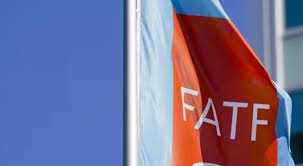Global Financial Task Force Warns India of Serious Threats from ISIS, Al-Qaeda in Jammu and Kashmir
New Delhi: The Financial Action Task Force (FATF), a global anti-money laundering and terror financing watchdog, has issued a stern warning to India about serious threats posed by Islamic State (ISIS) and Al-Qaeda-linked groups operating in and around Jammu and Kashmir. This warning comes despite the FATF’s praise for India’s efforts in combating illicit finance.
Overview of the FATF Report
The FATF’s latest ‘Mutual Evaluation Report’ on combating money laundering and terror financing, released after its June plenary meeting, spans 368 pages. The report highlights India’s strengths in conducting complex financial investigations but also points out areas needing improvement, particularly in the prosecution of such cases.
Key Findings and Praise for India
The FATF report commends India for its robust anti-money laundering (AML) and combating financing of terrorism (CFT) systems. India’s ability to conduct intricate financial investigations has been acknowledged, showcasing the country’s commitment to tackling illicit finance. However, the report also emphasizes the need for India to focus on concluding prosecutions to enhance the effectiveness of its AML/CFT regime.
Serious Threats from ISIS and Al-Qaeda
The report categorizes the range of terrorism threats in India into six different theatres, with the most significant threats emanating from ISIS and Al-Qaeda-linked extremist groups active in Jammu and Kashmir. These groups, either directly or through proxies and affiliates, pose a substantial risk to the region’s stability and security.
Regional Insurgencies and Other Threats
In addition to the threats from ISIS and Al-Qaeda, the report also highlights regional insurgencies in the northeast and north of India, as well as left-wing extremist groups seeking to overthrow the government. These diverse threats underscore the complex security landscape that India must navigate.
India’s Placement in the ‘Regular Follow-Up’ Category
India has been placed in the highest-ranked ‘regular follow-up’ category by the FATF, a distinction shared by only a few major countries, including the UK, France, and Italy. This placement reflects India’s ongoing commitment to improving its AML/CFT systems and addressing the challenges posed by terrorist financing and money laundering.
The Impact of Terrorist Financing in Jammu and Kashmir
The FATF report underscores the significant impact of terrorist financing in Jammu and Kashmir, where ISIS and Al-Qaeda-linked groups have been particularly active. The report details how these groups exploit the region’s vulnerabilities to finance their operations, posing a serious threat to both regional and national security.
Recommendations for India
To address these challenges, the FATF report provides several recommendations for India:
- Enhancing Prosecution Efforts: India needs to focus on concluding prosecutions to improve the effectiveness of its AML/CFT regime.
- Strengthening Financial Investigations: Continued efforts are required to enhance the country’s ability to conduct complex financial investigations.
- Addressing Regional Insurgencies: India must develop targeted strategies to address the diverse range of terrorism threats, including regional insurgencies and left-wing extremist groups.
- Improving Coordination: Enhanced coordination between various law enforcement and intelligence agencies is crucial to effectively combat terrorist financing and money laundering.
Bottom-Line
The FATF’s warning highlights the serious threats posed by ISIS and Al-Qaeda-linked groups in Jammu and Kashmir, despite India’s commendable efforts in combating illicit finance. The report’s recommendations provide a roadmap for India to further strengthen its AML/CFT systems and address the complex security challenges it faces.



